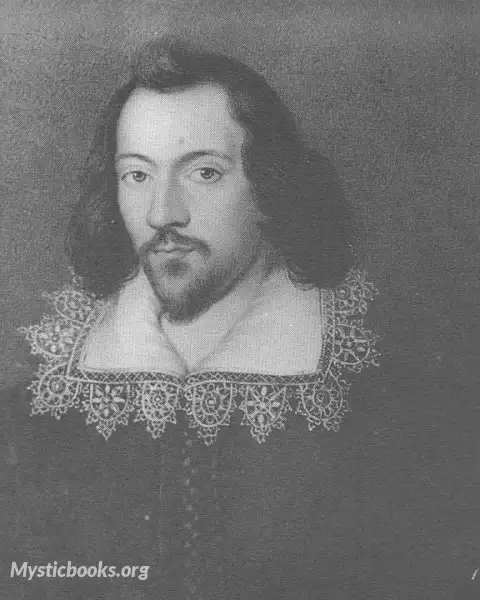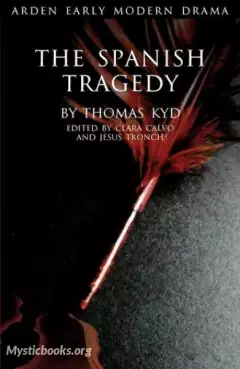
Timeline
Title
Country/Nationality
Thomas Kyd
Thomas Kyd was an English playwright, the author of The Spanish Tragedy, and one of the most important figures in the development of Elizabethan drama.
Although well known in his own time, Kyd fell into obscurity until 1773 when Thomas Hawkins, an early editor of The Spanish Tragedy, discovered that Kyd was named as its author by Thomas Heywood in his Apologie for Actors (1612). A hundred years later, scholars in Germany and England began to shed light on his life and work, including the controversial finding that he may have been the author of a Hamlet play pre-dating Shakespeare's, which is now known as the Ur-Hamlet.
Thomas Kyd was the son of Francis and Anna Kyd. There are no records of the day he was born, but he was baptised in the church of St Mary Woolnoth in the Ward of Langborn, Lombard Street, London on 6 November 1558. The baptismal register at St Mary Woolnoth carries this entry: "Thomas, son of Francis Kydd, Citizen and Writer of the Courte Letter of London". Francis Kydd was a scrivener and in 1580 was warden of the Scriveners' Company.
In October 1565 the young Kyd was enrolled in the newly founded Merchant Taylors' School, whose headmaster was Richard Mulcaster. Fellow students included Edmund Spenser and Thomas Lodge. Here, Kyd received a well-rounded education, thanks to Mulcaster's progressive ideas. Apart from Latin and Greek, the curriculum included music, drama, physical education, and "good manners". There is no evidence that Kyd went on to university. He may have followed in his father's professional footsteps because there are two letters written by him and his writing style is similar to that of a scrivener.
From 1587 to 1593 Kyd was in the service of an unidentified noble, since, after his imprisonment in 1593 (see below), he wrote of having lost "the favours of my Lord, whom I haue servd almost theis vi yeres nowe". Proposed nobles include the Earl of Sussex, the Earl of Pembroke, Lord Strange. and Edward De Vere, 17th Earl of Oxford. He may have worked as a secretary, if he did not also write plays. Around 1591 Christopher Marlowe also joined this patron's service, and for a while Marlowe and Kyd shared lodgings, and perhaps even ideas.
On 11 May 1593 the Privy Council ordered the arrest of the authors of "divers lewd and mutinous libels" which had been posted around London. The next day, Kyd was among those arrested; he would later believe that he had been the victim of an informer. His lodgings were searched and instead of evidence of the "libels" there was found an Arianist tract, described by an investigator as "vile heretical conceits denying the eternal deity of Jesus Christ found amongst the papers of Thos. Kydd (sic), prisoner ... which he affirmeth he had from C. Marley (sic)". It is believed that Kyd was tortured brutally to obtain this information. Kyd told authorities the writings found in his possession belonged to Christopher Marlowe, a fellow dramatist and former roommate. Kyd “accused his former roommate of being a blasphemous traitor, an atheist who believed that Jesus Christ was a homosexual,” an uninformed confusion over the Arian and Early Gnostic concept of homoousios (Ancient Greek: ὁμοούσιος). Unfortunately, Kyd was with Marlowe at the wrong place at the wrong time. Marlowe was summoned by the Privy Council after these events, and, while waiting for a decision on his case, was killed in an incident in Deptford involving known government agents.
Kyd was eventually released but was not accepted back into his lord's service. Believing he was under suspicion of atheism himself, he wrote to the Lord Keeper, Sir John Puckering, protesting his innocence, but his efforts to clear his name were apparently fruitless. The last we hear from the playwright is the publication of Cornelia early in 1594. In the dedication to the Countess of Sussex he alludes to the "bitter times and privy broken passions" he had endured. Kyd died later that year at the age of 35, and was buried on 15 August in St Mary Colechurch in London. In December of that same year, Kyd's mother legally renounced the administration of his estate, probably because it was debt-ridden.
St Mary Colechurch was destroyed in the Great Fire of London in 1666, and not rebuilt. Thus Thomas Kyd's grave was lost to posterity.
Books by Thomas Kyd

The Spanish Tragedy
The Spanish Tragedy is often considered to be the first mature Elizabethan drama, a claim disputed with Christopher Marlowe's Tamburlaine, and was parodied by many Elizabethan and Jacobean playwrights, including Marlowe, William Shakespeare and Ben J...